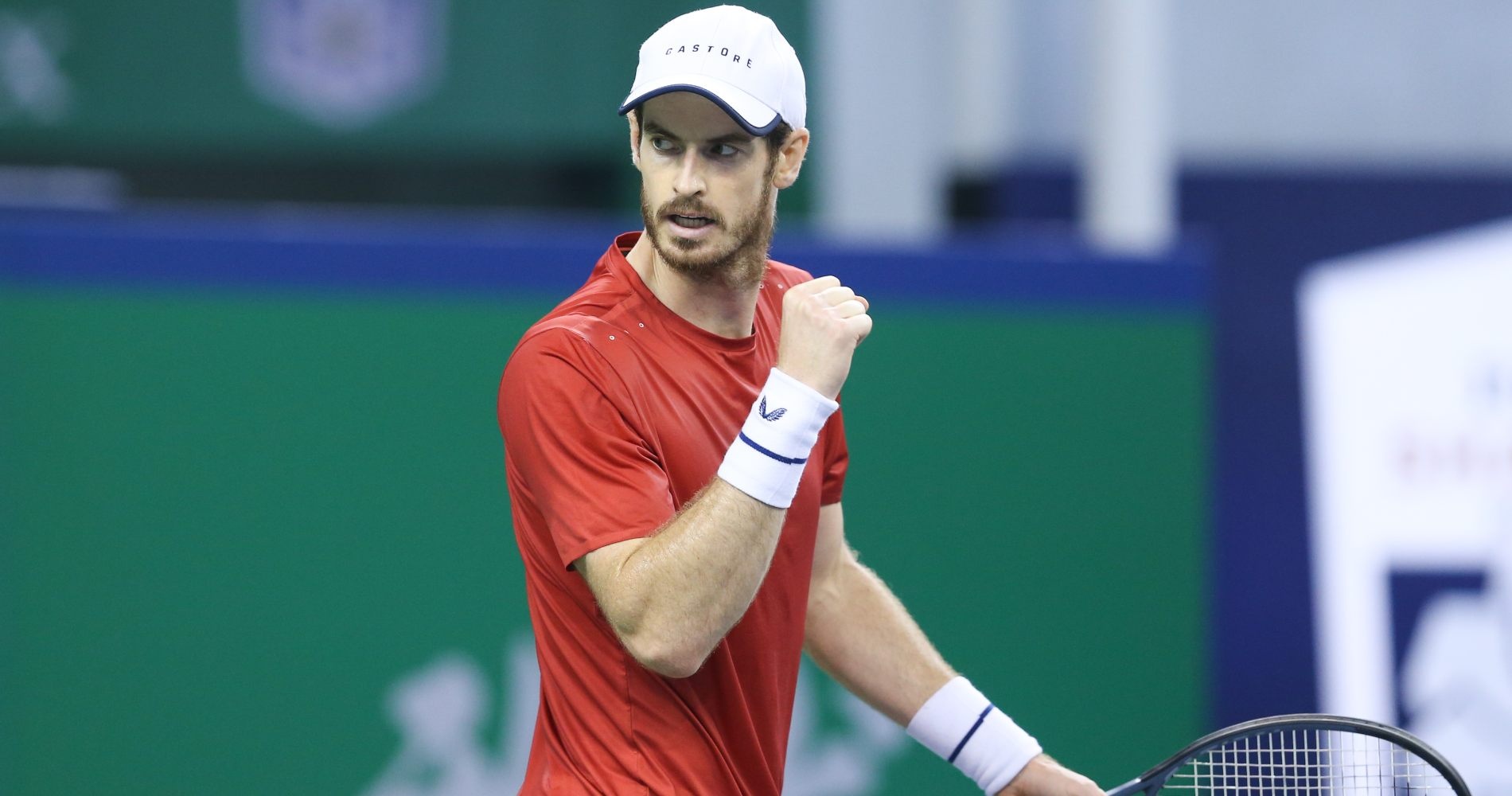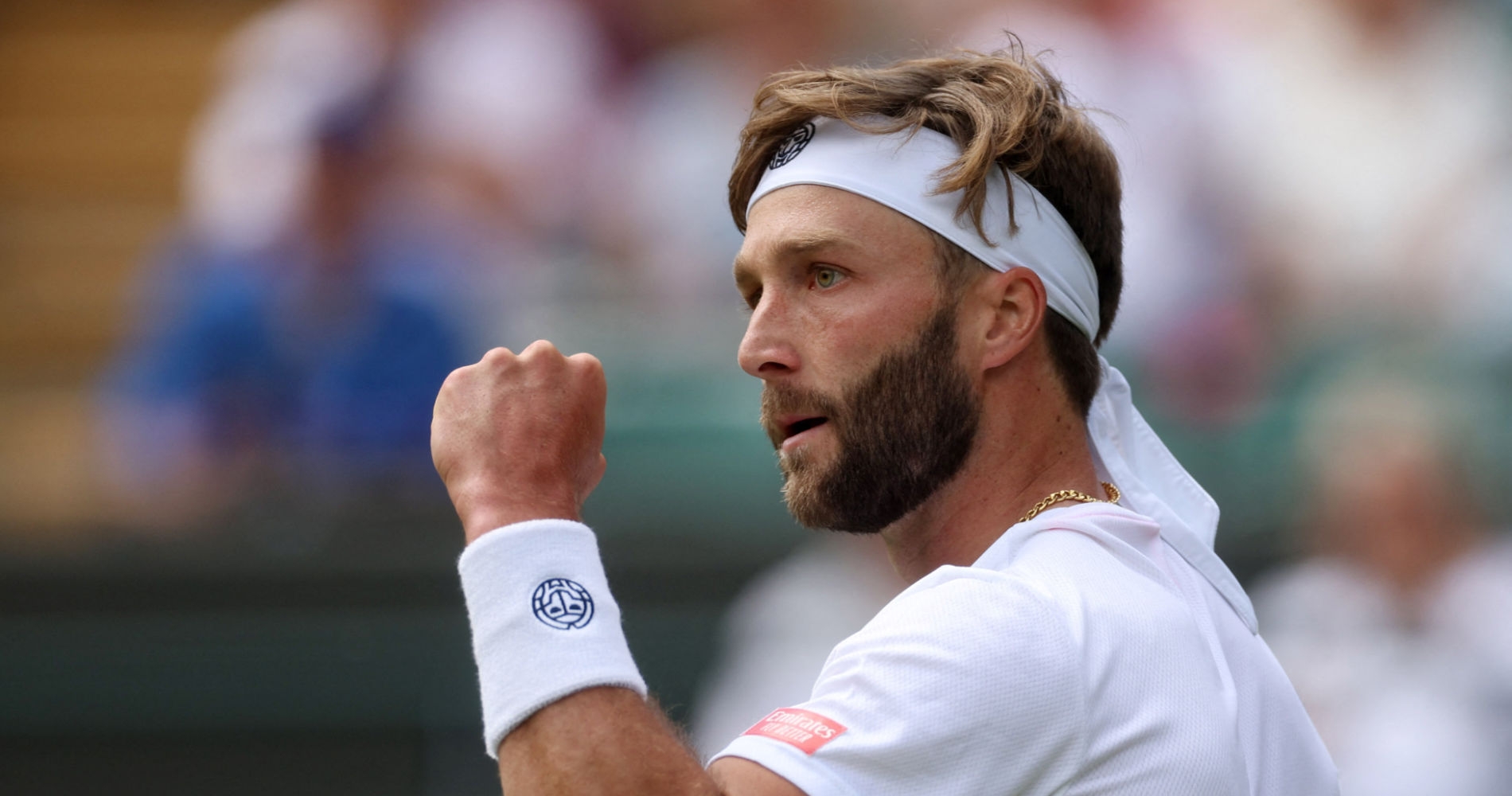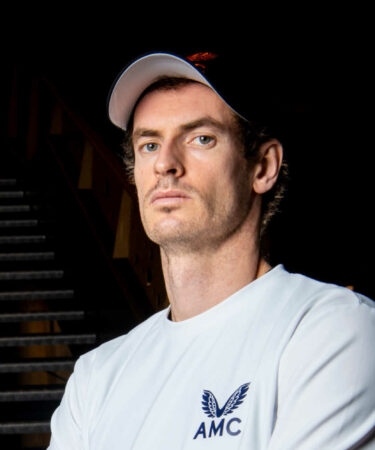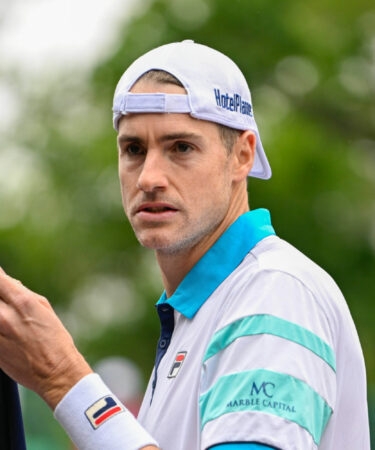Andy Murray will rue missed opportunity but if he wants to continue, there are reasons to be cheerful
Losing early at Wimbledon will hurt for some time but an improved serve offers hope for the future, however long Murray decides to play on
 Andy Murray © Action Plus / Panoramic
Andy Murray © Action Plus / Panoramic
Watching and listening to Andy Murray in his press conference at Wimbledon on Friday evening was tough and in many ways, sad. The champion in 2013 and 2016, Murray was disconsolate after his five-set loss to Stefanos Tsitsipas, kicking himself for not finishing the job, having led by two sets to one and for the first time questioning whether he will be back here next year.
“Motivation is obviously a big thing,” he said. “Continuing having early losses in tournaments like this don’t necessarily help with that. It’s similar to, I guess, last year (when he also lost in the second round, to John Isner). I had a long think about things, spoke to my family, decided to keep on going.
“I don’t plan to stop right now. But yeah, this one will take a little while to get over. Hopefully (I’ll) find the motivation again to keep training, keep pushing, try and keep getting better.”
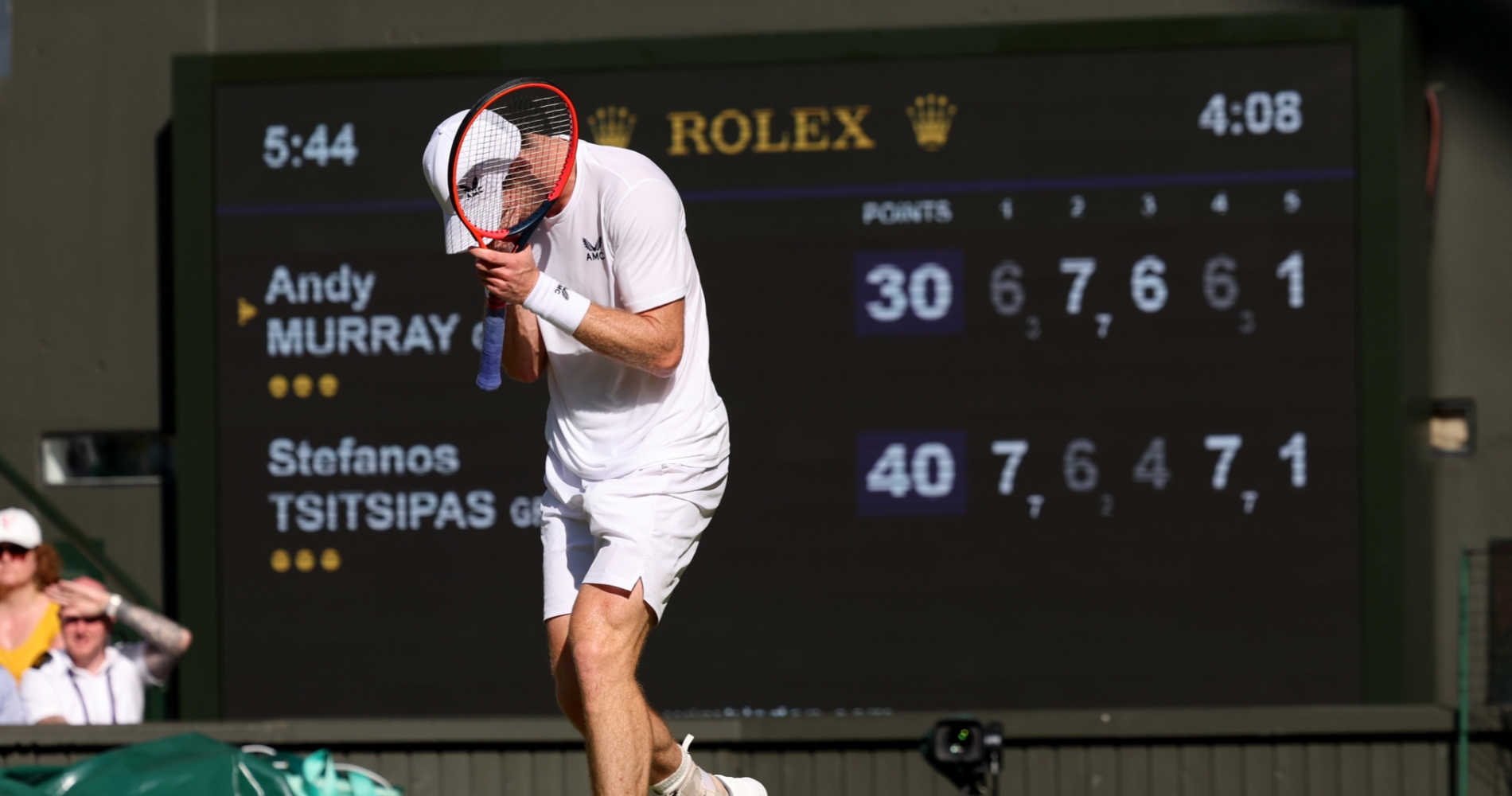
Losing early on Tour is no fun
In many ways, it’s been hard watching Murray in 2023. The fact that he’s out here on Tour competing, fighting, battling, is a miracle in itself, given his two hip operations and the severity of playing with a metal hip. What he’s doing at 36 is incredible. In other ways, seeing him lose in the early rounds of most tournaments is tough to take, a realisation that time and wear and tear will eventually triumph.
Though Murray’s wins over Matteo Berrettini and Thanasi Kokkinakis at the Australian Open offered promise for the coming months, the first half of the season has not yielded the kind of success he’d hoped.
He reached the final in Doha and third round in Indian Wells but other than that, he lost his first match in six straight ATP Tour events, up to Queen’s. Between times, he won three Challenger Tour events, one on clay and two on grass, which is why, in part, he arrived at Wimbledon with confidence.
Wimbledon a missed opportunity
What must be eating away at Murray most of all is that this year’s Wimbledon offered a big opportunity for him to make a run at a slam, perhaps to reach a quarter-final for the first time since 2017.
Though Stefanos Tsitsipas is a formidable opponent, his record on grass is not good. Had he got through that match, and the was very close to doing just that, Murray would have played Laslo Djere in round three, with Christopher Eubanks or Christopher O’Connell to follow for a place in the last eight. Murray knows that better than anyone.
“Ultimately this was an opportunity for me,” he said. “I had a good chance of having a proper run for the first time in a long time at a slam. I didn’t take it. Regardless of the atmosphere and those things, it’s still very, very disappointing to be sitting here right now.”
Murray will be asking himself: Is it worth it?
It must be a conversation that Murray is having with his team and family more and more these days. What’s the point in going out there, doing all the work, staying away from home for long periods, if the results are not going to come. Murray will leave Wimbledon ranked just outside the top 40, not far off his stated goal of being seeded for Grand Slams but knowing he will need a fair few wins in the US hardcourt season to do so by the US Open.
Losing to people he would once have demolished must be hard to take. This is a man who has won three Grand Slams, including two Wimbledons, who has been ranked No 1, who lifted the Davis Cup for his country and who has won 46 titles all over the world. His place in history is assured and if he hung up his racket tomorrow, he would be a stone-cold legend of the sport.
The longer he doesn’t see any reward for his efforts the more likely his retirement date will come but Murray continues to believe that he can improve, that he can show the kind of tennis he did for most of the match against Tsitsipas week in, week out.
Reasons to be cheerful
First off, Murray arrived at Wimbledon in good shape, his body seemingly having adjusted better and better to his metal hip. His fitness was good, his tennis looked good too.
Second, Murray has changed, and improved his serve. Against Tsitsipas, one of the more aggressive players on the Tour, Murray did not drop his serve until the fifth set, a modified action producing more power than in the past. He averaged 115mph on first serve and 90mph on second, more than decent figures. That dropped service game against Tsitsipas was the only time he lost serve in two matches.
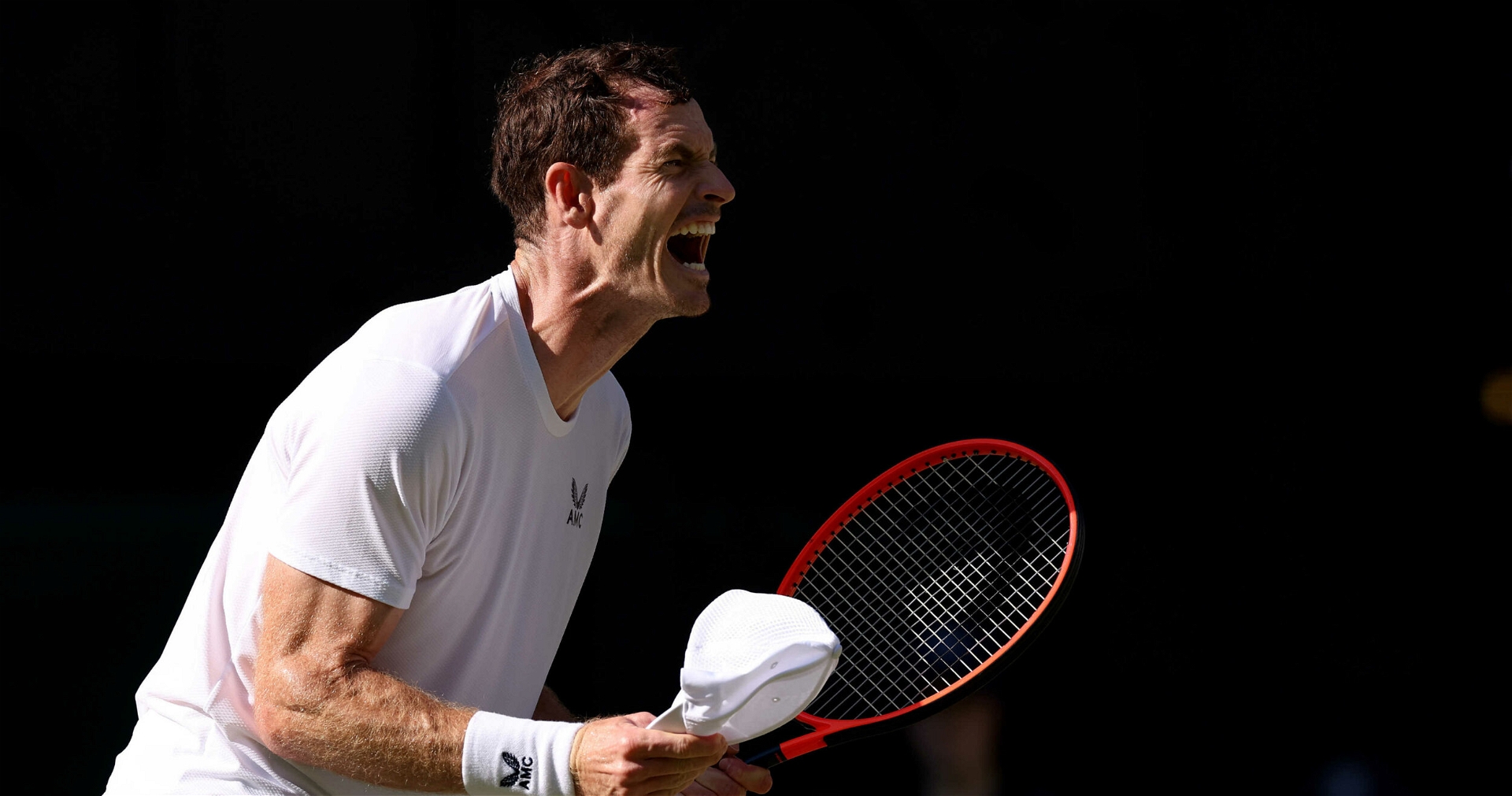
Changing something as crucial as your service action, at the age of 36, suggests he’s looking ahead, not back. If he can continue to serve like that he’ll win more matches. If he’s seeded at slams, he’ll avoid the biggest dangers early on, which will breed confidence.
There are still few players out there who play as well on grass as Murray. Though he does not have the sheer dynamism that characterised his movement, especially out wide, when in his pomp, his anticipation is still world class, his speed off the mark just as impressive. If he can play a full year from this point to next year’s Wimbledon, maybe he’ll have a better chance.
So, what should Murray do? What will he do?
It’s impossible to tell. Second-guessing Murray is not a task worth taking on. There are a lot of things at play. His family remain incredibly supportive of him being out there, grinding on Tour. His desire to win matches, perform well, remains undimmed, it seems.
At the beginning of the tournament, Murray said performance was almost as important as results. If he feels he played well, at a level he wants to, then the chances are he’ll keep going until he can’t do it any longer, or until he’s not winning any matches, not giving himself a chance to win titles.
And who are we to say what he should do? That is a decision that can only be made by him, it’s only down to him and his family. You’re a long-time retired and as any sportsman or woman will tell you, replacing the buzz of playing sport to a world class level is incredibly difficult to do.
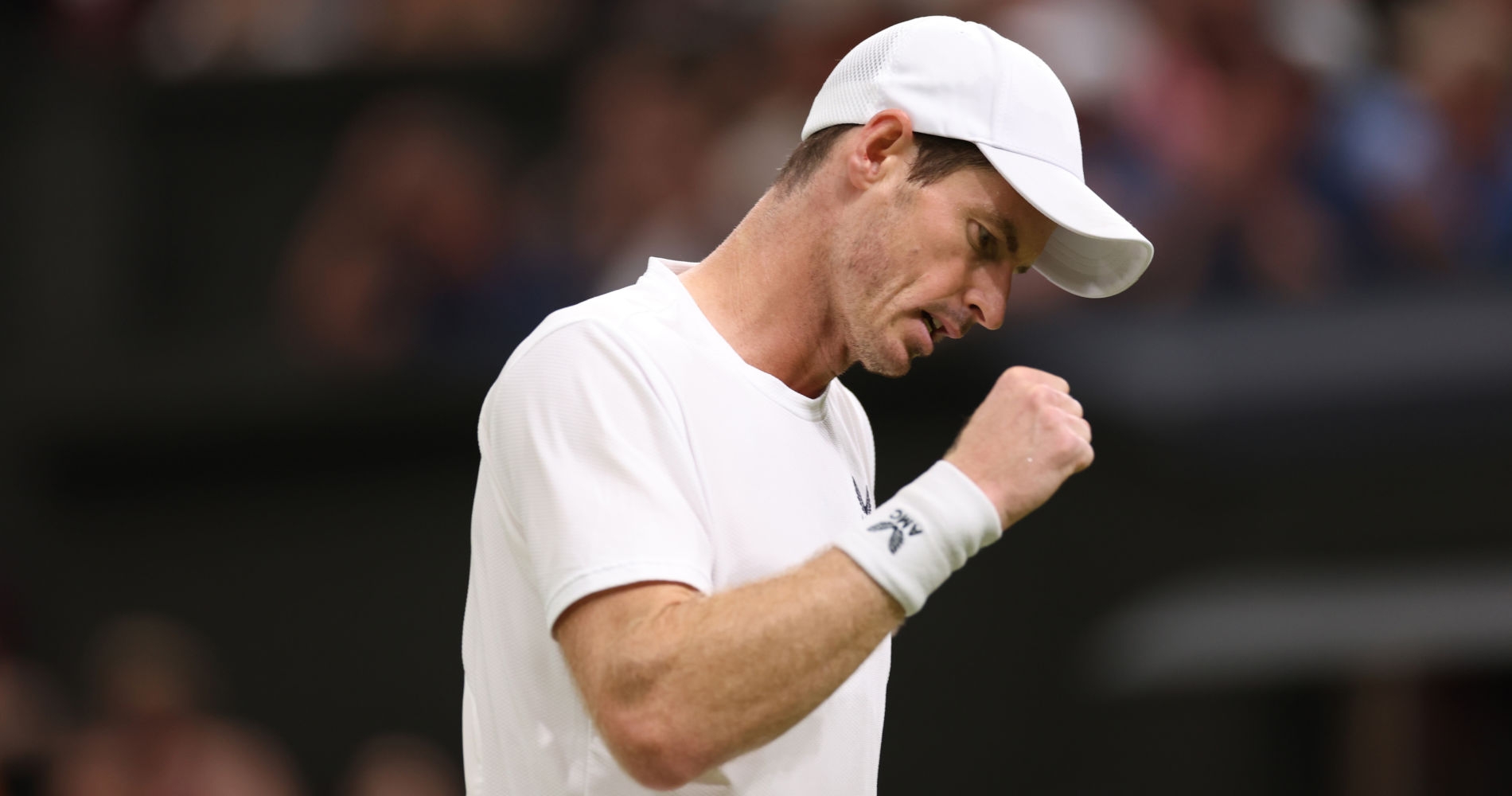
Murray has got his ranking up inside the top 50, which means he’ll be directly into the Masters 1000 events, which offer good chances to pick up points. If he wants to keep playing, keep trying to improve, keep looking for perhaps one big run in a slam, or one more big title before he hangs up his rackets, he’s earned that right. He won’t need wildcards, he will be there on merit.
At the beginning of Wimbledon, Murray said he had a date in mind for his retirement. Maybe it’ll be at the US Open, where he won his first slam in 2012; maybe it’ll be at the Paris Olympics, 12 years after his win in London that kick-started the most successful phase of his career.
Whenever it is, let’s hope there’s at least one more hurrah because after the retirement of Roger Federer and the fact that Rafael Nadal is nearing the end of his career, the longer one of the real stars of the last 25 years can hang around, the better.


